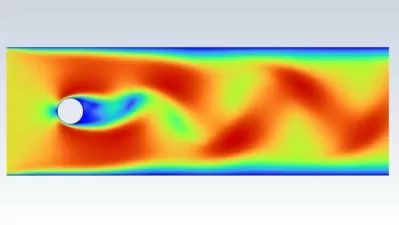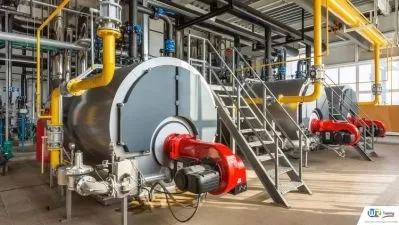Front End Engineering Design (Feed): Comprehensive Guide
Atul Singla
48:46
Description
The Strategic Role of FEED in Ensuring Successful EPC Projects
What You'll Learn?
- What Is FEED in EPC?
- Project Benefits of FEED
- Technical Benefits of FEED
- Economic Benefits of FEED
- FEED Deliverables
- Best Practices for FEED in EPC Projects
- Phases of FEED
- Benefits for EPC Contractors
- Benefits for Project Owners
- The Role of FEED in EPC Projects
- Common Causes of FEED Engineering Failures
- The Impact of Poor FEED on Project Outcomes
- Solutions to Prevent FEED Engineering Failures
- The Role of Technology in Improving FEED Engineering
Who is this for?
What You Need to Know?
More details
DescriptionIn the fast-paced world of Engineering, Procurement, and Construction (EPC), Front-End Engineering Design (FEED) is the cornerstone of successful projects. FEED establishes a detailed blueprint for all project stages, ensuring technical and economic alignment and setting up projects for successful execution. This newly launched FEED in EPC Projects Course provides a comprehensive guide through every aspect of FEED, from understanding its fundamentals to mastering best practices for improved outcomes.
Why FEED is Essential in EPC Projects
FEED is the early project development stage where initial designs, costs, timelines, and technical specifications are defined. This process plays a crucial role in identifying potential challenges, improving cost efficiency, and mitigating risks before construction begins. By mastering FEED, professionals can significantly improve the outcomes of EPC projects, ensuring they are delivered on time, within budget, and to the highest standards.
Why Choose This Course?
Designed for project managers, engineers, and contractors, this FEED in EPC Course provides an in-depth exploration of FEED’s benefits, challenges, and methodologies for success. With a combination of expert insights, case studies, and practical examples, this course empowers professionals to:
Enhance Project Accuracy: Understand how FEED can predict and mitigate project risks, ensuring smoother execution and fewer change orders.
Optimize Cost Efficiency: Learn to manage budgets effectively and prevent cost overruns by applying best practices in FEED.
Improve Technical Precision: Gain insights into technical design criteria, and identify and address potential issues early.
Strengthen Client and Stakeholder Relationships: Master the communication and documentation aspects of FEED to keep all parties aligned.
Course Highlights
This course breaks down FEED from its foundations to advanced applications in EPC projects, making it valuable for all experience levels.
1. What is FEED in EPC?
Introduction to FEED: Understand FEED’s role as the preparatory phase in EPC and its critical impact on project outcomes.
Purpose of FEED: Learn why FEED is essential for both project owners and contractors, serving as a vital bridge between planning and execution.
2. Project Benefits of FEED
Comprehensive Project Scoping: Learn how FEED helps create a realistic scope that sets clear project boundaries.
Stakeholder Alignment: Discover how FEED brings project owners, contractors, and other stakeholders to a mutual understanding from the outset.
3. Technical and Economic Benefits of FEED
Technical Benefits: Explore how FEED provides in-depth technical insights, ensuring specifications meet regulatory and operational standards.
Economic Benefits: Understand the financial advantages of investing in FEED, including improved budget accuracy and reduced project delays.
4. FEED Deliverables
Project Deliverables: Get to know the key deliverables of the FEED phase, including 3D models, engineering drawings, specifications, and initial project schedules.
Documentation and Reporting: Learn to prepare essential documentation for clear, effective communication with stakeholders and regulatory bodies.
5. Best Practices for FEED in EPC Projects
Project Planning Techniques: Master strategies for structuring and executing FEED processes to optimize efficiency and accuracy.
Risk Mitigation Approaches: Gain insights into anticipating and addressing project risks before they become costly problems.
6. Phases of FEED
FEED Stages: Learn the stages within FEED and how they transition into EPC, including feasibility studies, preliminary engineering, and concept evaluation.
Design Progression: Understand how each phase advances project understanding and informs subsequent decisions.
7. Benefits of FEED for EPC Contractors and Project Owners
Advantages for EPC Contractors: Explore how FEED supports contractors by providing clarity on project requirements, helping to reduce change orders and streamline execution.
Benefits for Project Owners: Discover how FEED enhances owners' control over project scope, costs, and timelines, ensuring greater project predictability.
8. The Role of FEED in EPC Projects
Strategic Importance of FEED: Learn how FEED bridges the planning and execution phases, transforming project concepts into executable designs.
Collaborative Opportunities: Understand the importance of collaboration between project teams during FEED to set a strong foundation.
9. Common Causes of FEED Engineering Failures
Project Pitfalls: Identify the most common reasons FEED can fail, from misalignment with client expectations to insufficient project data.
Overcoming Obstacles: Learn strategies to overcome typical FEED challenges and reduce risks.
10. The Impact of Poor FEED on Project Outcomes
Consequences of Weak FEED: Understand how inadequate FEED can lead to budget overruns, delays, and compromised project quality.
Case Studies: Review real-world examples of projects affected by poor FEED and learn what could have been done differently.
11. Solutions to Prevent FEED Engineering Failures
Proactive Approaches: Learn actionable solutions to prevent common FEED issues, from enhancing team communication to investing in adequate resources.
Continuous Improvement: Discover how implementing best practices can make your FEED processes more effective over time.
12. The Role of Technology in Improving FEED Engineering
Digital Innovations: Explore the latest technologies, such as BIM and simulation tools, that are revolutionizing FEED processes in EPC projects.
Data-Driven Design: Understand how data collection and analysis tools can enhance project accuracy and efficiency during FEED.
Who Should Take This Course?
Project Managers overseeing large-scale EPC projects who want to ensure optimal planning and execution.
Mechanical, Process, and Civil Engineers looking to specialize in FEED processes within the EPC industry.
EPC Contractors aiming to reduce risks and improve project success rates by investing in solid project foundations.
Project Owners seeking better oversight and control over project timelines, budgets, and quality.
What You’ll Gain from This Course
In-Depth Understanding of FEED: Gain comprehensive knowledge of FEED processes, enabling you to lead projects with greater accuracy and precision.
Enhanced Project Management Skills: Learn to create well-structured project scopes, timelines, and budgets that facilitate smooth transitions from planning to execution.
Technical and Economic Acumen: Understand both the technical and economic implications of FEED, allowing for more informed decision-making.
Certification: Upon completion, receive a certificate of achievement that attests to your expertise in FEED processes, enhancing your career prospects.
Benefits of a Strong FEED Process for Project Success
With FEED as the cornerstone of any successful EPC project, this course empowers professionals to lay the groundwork for project success. By gaining mastery in FEED, you will be equipped to:
Reduce Project Costs: By anticipating potential issues early, FEED helps prevent costly delays and revisions.
Ensure Regulatory Compliance: Understand the importance of compliance with industry standards, reducing the likelihood of legal or operational setbacks.
Streamline Communication: By standardizing project expectations and deliverables, FEED enhances communication between all project stakeholders.
What Past Learners Say
Professionals across industries have praised this course for its actionable insights, real-world examples, and the clarity with which it explains complex topics. Engineers and managers alike highlight the course’s focus on practical applications, which has enabled them to implement best practices immediately in their roles.
Frequently Asked Questions (FAQs)
Q: How long is the course?
A: The course is self-paced, with an estimated completion time of around 50-60 hours, depending on individual progress.
Q: Will I receive a certificate?
A: Yes, you’ll receive a certificate upon successful completion, which can bolster your resume and professional profile.
Q: Can I take this course while working full-time?
A: Absolutely! The course is designed for flexible learning, allowing you to balance it with your work commitments.
Q: Do I need prior experience in EPC or FEED?
A: While some background in EPC projects is beneficial, the course covers everything from foundational concepts to advanced techniques, making it suitable for all experience levels.
Take the Next Step in Your Career with FEED Expertise
With this FEED in EPC Projects Course, you’re not just learning concepts; you’re acquiring critical skills that can transform your career. By mastering FEED, you’ll be better equipped to deliver projects on time, within budget, and at the highest quality standards, setting yourself apart as a leader in the EPC industry.
Are you ready to lead your projects to success? Enroll now and gain the knowledge to transform your approach to EPC projects through the power of effective FEED processes.
Who this course is for:
- Energy Sector professional
In the fast-paced world of Engineering, Procurement, and Construction (EPC), Front-End Engineering Design (FEED) is the cornerstone of successful projects. FEED establishes a detailed blueprint for all project stages, ensuring technical and economic alignment and setting up projects for successful execution. This newly launched FEED in EPC Projects Course provides a comprehensive guide through every aspect of FEED, from understanding its fundamentals to mastering best practices for improved outcomes.
Why FEED is Essential in EPC Projects
FEED is the early project development stage where initial designs, costs, timelines, and technical specifications are defined. This process plays a crucial role in identifying potential challenges, improving cost efficiency, and mitigating risks before construction begins. By mastering FEED, professionals can significantly improve the outcomes of EPC projects, ensuring they are delivered on time, within budget, and to the highest standards.
Why Choose This Course?
Designed for project managers, engineers, and contractors, this FEED in EPC Course provides an in-depth exploration of FEED’s benefits, challenges, and methodologies for success. With a combination of expert insights, case studies, and practical examples, this course empowers professionals to:
Enhance Project Accuracy: Understand how FEED can predict and mitigate project risks, ensuring smoother execution and fewer change orders.
Optimize Cost Efficiency: Learn to manage budgets effectively and prevent cost overruns by applying best practices in FEED.
Improve Technical Precision: Gain insights into technical design criteria, and identify and address potential issues early.
Strengthen Client and Stakeholder Relationships: Master the communication and documentation aspects of FEED to keep all parties aligned.
Course Highlights
This course breaks down FEED from its foundations to advanced applications in EPC projects, making it valuable for all experience levels.
1. What is FEED in EPC?
Introduction to FEED: Understand FEED’s role as the preparatory phase in EPC and its critical impact on project outcomes.
Purpose of FEED: Learn why FEED is essential for both project owners and contractors, serving as a vital bridge between planning and execution.
2. Project Benefits of FEED
Comprehensive Project Scoping: Learn how FEED helps create a realistic scope that sets clear project boundaries.
Stakeholder Alignment: Discover how FEED brings project owners, contractors, and other stakeholders to a mutual understanding from the outset.
3. Technical and Economic Benefits of FEED
Technical Benefits: Explore how FEED provides in-depth technical insights, ensuring specifications meet regulatory and operational standards.
Economic Benefits: Understand the financial advantages of investing in FEED, including improved budget accuracy and reduced project delays.
4. FEED Deliverables
Project Deliverables: Get to know the key deliverables of the FEED phase, including 3D models, engineering drawings, specifications, and initial project schedules.
Documentation and Reporting: Learn to prepare essential documentation for clear, effective communication with stakeholders and regulatory bodies.
5. Best Practices for FEED in EPC Projects
Project Planning Techniques: Master strategies for structuring and executing FEED processes to optimize efficiency and accuracy.
Risk Mitigation Approaches: Gain insights into anticipating and addressing project risks before they become costly problems.
6. Phases of FEED
FEED Stages: Learn the stages within FEED and how they transition into EPC, including feasibility studies, preliminary engineering, and concept evaluation.
Design Progression: Understand how each phase advances project understanding and informs subsequent decisions.
7. Benefits of FEED for EPC Contractors and Project Owners
Advantages for EPC Contractors: Explore how FEED supports contractors by providing clarity on project requirements, helping to reduce change orders and streamline execution.
Benefits for Project Owners: Discover how FEED enhances owners' control over project scope, costs, and timelines, ensuring greater project predictability.
8. The Role of FEED in EPC Projects
Strategic Importance of FEED: Learn how FEED bridges the planning and execution phases, transforming project concepts into executable designs.
Collaborative Opportunities: Understand the importance of collaboration between project teams during FEED to set a strong foundation.
9. Common Causes of FEED Engineering Failures
Project Pitfalls: Identify the most common reasons FEED can fail, from misalignment with client expectations to insufficient project data.
Overcoming Obstacles: Learn strategies to overcome typical FEED challenges and reduce risks.
10. The Impact of Poor FEED on Project Outcomes
Consequences of Weak FEED: Understand how inadequate FEED can lead to budget overruns, delays, and compromised project quality.
Case Studies: Review real-world examples of projects affected by poor FEED and learn what could have been done differently.
11. Solutions to Prevent FEED Engineering Failures
Proactive Approaches: Learn actionable solutions to prevent common FEED issues, from enhancing team communication to investing in adequate resources.
Continuous Improvement: Discover how implementing best practices can make your FEED processes more effective over time.
12. The Role of Technology in Improving FEED Engineering
Digital Innovations: Explore the latest technologies, such as BIM and simulation tools, that are revolutionizing FEED processes in EPC projects.
Data-Driven Design: Understand how data collection and analysis tools can enhance project accuracy and efficiency during FEED.
Who Should Take This Course?
Project Managers overseeing large-scale EPC projects who want to ensure optimal planning and execution.
Mechanical, Process, and Civil Engineers looking to specialize in FEED processes within the EPC industry.
EPC Contractors aiming to reduce risks and improve project success rates by investing in solid project foundations.
Project Owners seeking better oversight and control over project timelines, budgets, and quality.
What You’ll Gain from This Course
In-Depth Understanding of FEED: Gain comprehensive knowledge of FEED processes, enabling you to lead projects with greater accuracy and precision.
Enhanced Project Management Skills: Learn to create well-structured project scopes, timelines, and budgets that facilitate smooth transitions from planning to execution.
Technical and Economic Acumen: Understand both the technical and economic implications of FEED, allowing for more informed decision-making.
Certification: Upon completion, receive a certificate of achievement that attests to your expertise in FEED processes, enhancing your career prospects.
Benefits of a Strong FEED Process for Project Success
With FEED as the cornerstone of any successful EPC project, this course empowers professionals to lay the groundwork for project success. By gaining mastery in FEED, you will be equipped to:
Reduce Project Costs: By anticipating potential issues early, FEED helps prevent costly delays and revisions.
Ensure Regulatory Compliance: Understand the importance of compliance with industry standards, reducing the likelihood of legal or operational setbacks.
Streamline Communication: By standardizing project expectations and deliverables, FEED enhances communication between all project stakeholders.
What Past Learners Say
Professionals across industries have praised this course for its actionable insights, real-world examples, and the clarity with which it explains complex topics. Engineers and managers alike highlight the course’s focus on practical applications, which has enabled them to implement best practices immediately in their roles.
Frequently Asked Questions (FAQs)
Q: How long is the course?
A: The course is self-paced, with an estimated completion time of around 50-60 hours, depending on individual progress.Q: Will I receive a certificate?
A: Yes, you’ll receive a certificate upon successful completion, which can bolster your resume and professional profile.Q: Can I take this course while working full-time?
A: Absolutely! The course is designed for flexible learning, allowing you to balance it with your work commitments.Q: Do I need prior experience in EPC or FEED?
A: While some background in EPC projects is beneficial, the course covers everything from foundational concepts to advanced techniques, making it suitable for all experience levels.
Take the Next Step in Your Career with FEED Expertise
With this FEED in EPC Projects Course, you’re not just learning concepts; you’re acquiring critical skills that can transform your career. By mastering FEED, you’ll be better equipped to deliver projects on time, within budget, and at the highest quality standards, setting yourself apart as a leader in the EPC industry.
Are you ready to lead your projects to success? Enroll now and gain the knowledge to transform your approach to EPC projects through the power of effective FEED processes.
Who this course is for:
- Energy Sector professional
User Reviews
Rating
Atul Singla
Instructor's Courses
Udemy
View courses Udemy- language english
- Training sessions 14
- duration 48:46
- Release Date 2025/02/24











